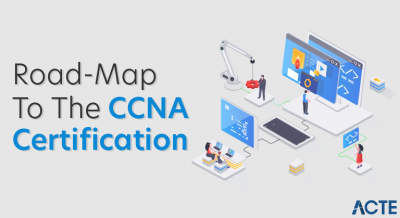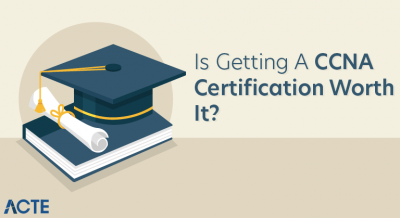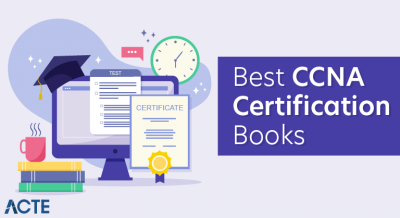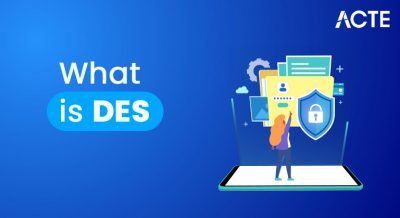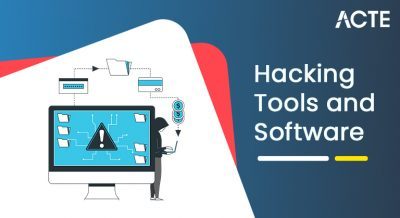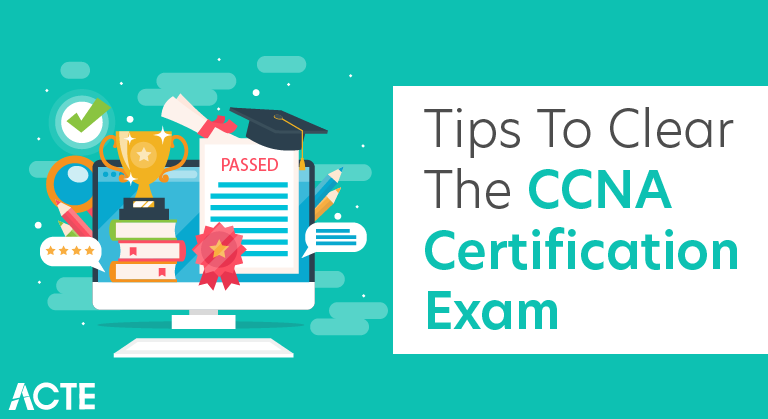
CCNA Exam Tips
Getting ready to take the CCNA/CCENT/CCDA/CCNA Security certification exam?
We asked InfoSec Institute professors and industry experts to send us their certification exam insights. Here are their top 10 tips to help you pass your Cisco certification exam.
1. Get to Know Your Exam
This may sound overly simple, but your first step to success is knowing the challenge you are going to face. Cisco’s website will help you find basic information on the CCNA quad certification exam.
It will also provide links to a lot of useful information, such as official training providers, exam topics, practice tests and study material.
The Cisco Official Cert Guide contains essential details such as an overview of the certification and the exam, including its prerequisites, how many and what type of questions you are about to face, time allotted for examination and the passing mark.
It also provides detailed information on the topics that will be covered in the examination, including the percentage of questions dedicated to each subject. This helps a lot, especially in constructing your study plan.
2. Create Your Own Custom Study Plan
Without adequate planning, your chance of success will drop. Creating a study plan that fits your personal needs is essential; even a simple to-do list can help a lot. As mentioned before, the certification guide will provide a basic recommendation for study hours required, but that is quite generic. For your custom study plan, you should consider factors such as:
- How soon do you intend to take the examination? Create an account on the Pearson VUE website to find a time and location that works for you.
- How much time can you devote to your study efforts? If you are already working, or have other commitments, make sure you can dedicate sufficient time to the basics, such as covering all exam topics, taking practice tests and reviewing exam simulations.
- How much can you spend on preparation material and training courses? Look for official, certified study materials and training to make sure you have a thorough understanding of each topic covered in the exam. A great option is getting the official pre-study book and reading it early on; this will create a solid basis for further developing your skills/knowledge with whatever training methodology you chose.
- What training method best suits you? Some people prefer self-learning, while others may think there is no substitute for the classroom. Other candidates find online training helps them study on-the-go, at any time. Use your past learning experiences to help you pick the method to help you prepare best.
- How well acquainted are you already with the exam subjects? Even very experienced professionals, with good knowledge about the certification subject, can have a hard time during the examination. Your personal experience can save you some studying time, but you should take into consideration factors such as the exam length and question logic. Relying too much on experience alone is a poor strategy that will likely lead to bad results.
3. Get Involved In an Exam Prep Course
Deciding to use a self-study-only approach may seem like a bold decision, but it may not be the best strategy. It is important to understand achieving exam success requires in-depth knowledge of several different subjects, even for entry level certs. The definitions and understanding of some of these topics may vary, depending on the point of view of whatever certification body was responsible for developing the exam. In practice, this means even if you have firsthand knowledge, some of it may not apply since the certification body’s view may be quite different from the tasks professionals are used to doing in the field.
Going through a certification preparation course lets candidates spend some time with an experienced instructor, with actual knowledge on how to beat the exam. It is an excellent opportunity to get all your questions answered, share experiences and strategies, and even do some networking if it is in-person training. This results in a greater success rate on any certification exam.
4. Understand TCP/IP Stack Addressing & Data Flow
To pass the CCNA quad certification, you will need a solid understanding of how the modern protocol stack of TCP/IP works. Critically, you must understand how addressing works.
Link Layer: Most of the focus at the data access layer will be on Ethernet addressing. You should understand the following about media access control (MAC) addresses:
- MAC address structure: 48 bits represented as 12 hexadecimal digits.
- MAC addressing on the local network: Any two hosts/nodes on a network communicate using MAC addresses. Understand how ARP works, and how a host keeps an ARP cache/table.
- Switches and MAC addresses: A basic understanding of the MAC address table or computer addressable memory (CAM) table, and how a switch uses it to forward and filter traffic.
Internet Layer: The tests will all have questions about Internet Protocol (IP) addressing. These include:
- IPv4 addressing: Know the reserved addresses, and understand what the subnet mask does.
- IPv6 addressing: Know the different address types (global, link local, unique local, etc.).
If possible, spend some time getting familiar with subnetting concepts.
Transport Layer: Be familiar with some of the common port numbers for well-known services like Telnet (23), Http (80), Https (443) and others.
5. Have a Basic Understanding of the Cisco Command Line Interface (CLI)
The Cisco tests include lab work, and a Cisco technician should have a solid understanding of the basic configuration and investigative commands. Specifically, you should understand how to use the show commands to do the following:
- Examine interface settings
- Check routing protocols
- View mac address tables
- Verify configuration details
Even though these topics are covered extensively in the classes, having some knowledge ahead of time will put you ahead of the curve for test preparation.
6. Take Practice Exams
Whenever available, practice exams are a great way to test yourself. It is not only a question of having a good grasp of the test subject matter, but also getting familiar with how questions are structured. Again, I am strongly in favor of using official training material and question databases, as it should be the best approach to emulate the real exam. One thing should be clear: try not to memorize every question. This may seem like an easy way to deal with a certification, but most exams have thousands of questions in their official banks. Instead, try to use practice exams as an opportunity to discover your strengths and weaknesses. If you consistently have a top score in a specific subject, you may divert study time to reinforce areas in which you did not do as well.
Also, a good question database will not only show the correct response, but also explain why it is correct and even have details on why the other options are incorrect; this is great for complementing whatever prep course you may have chosen.
Another excellent way to use practice exams is emulating a complete exam. It may sound nice to take a batch of 10 questions whenever you have some free time, but every candidate should take a complete mock exam at least a couple times. Completing a full practice exam will not only test your skills, but also improve your resilience, attention level and concentration.
As for practice exam test results, do not be discouraged. Unless you are an experienced test taker, it is quite common for things to go sour during the first round of questions, especially if you are not done with your reading and cert prep course. Take your time to study and use every resource available to clarify any doubts. By the end of your study plan, you will see consistent results in practice exams.
7. Join the Online Community
There is no lack of online material and communities for most IT certification exams. Taking part in online forums helps you learn and share exam strategies, helping you learn from other’s success and failure stories. As for finding the best online community, aside from the Cisco Learning Network, a simple Google search on “certification name + forum” can land some nice results. The CCNA Reddit page is bursting with people from around the world willing to share experiences.
A word of advice though: Unless you have time to help others, stay away from toxic people and posts. Many unfortunate exam takers go online to vent their frustration and this can be discouraging.
8. Have an Exam-Day Preparation Plan
Finally the big day is about to happen. Are you anxious? Not to worry, it is quite common! Your primary focus should be on not exhausting yourself and being at your best during the exam.
A few things to remember:
- Is your exam kit ready?
- Check the Pearson VUE website to make sure you have everything you need for the day of your CCNA exam. This may sound silly, but some candidates fail to even attend the test for not having these items. Make sure you check the exam/candidate guide to see what is required. You may also want to call your test center to verify you understand the requirements.
- Are you calm and well rested?
- Believe me, this tip may be as important as any regarding your study plan. Many candidates fail because of physical and mental exhaustion. Staying up late doing a final round of study may sound tempting, but last-minute reading is usually not a good thing, and may even leave you anxious.
- If you think it is important to do a final review, do a selective reading instead. Also, do not focus solely on weaknesses. If you have not mastered a specific topic until now, you may prefer to focus on enhancing the areas where you’re good. A great tool for selective reading is using summaries or glossaries, which have lots of important information, some of which you may have missed or lost contact with during your study sessions. As for the physical side, ingesting (even small amounts) of alcoholic beverages is a really bad idea. Instead try having a light balanced meal.
- If your exam is during the morning, having a balanced breakfast and drinking plenty is a very helpful way to make sure you are at your best. If it is during the afternoon, eat a light lunch.
- Did you make the necessary arrangements to be on time at the test site?
- Many certifications have a strict time table. Candidates who are late may not be admitted to the site if they are late. If you are using public transportation, double check the best routes; if you are driving to the exam site, make sure to know where to park beforehand.
9. Clear Your Mind
That’s it, your time to shine has arrived! Take a deep breath and remember that you put in the time and are prepared to succeed.
Here are some last-minute tips:
- Be aware of time. During the exam, you may reach a high level of concentration I like to call “the zone.” This means a greater focus, which is great for question solving, but you must not lose your notion of time. What may seem like seconds can be precious minutes; hours tend to pass at a very fast rate, so make sure you have time to go through every question on the exam and fill answer key forms if required.
- Take your time reading the questions. Even with a limited exam time length, it is important not to rush. Take your time and pay attention to each question and option, make sure you understand what is being asked, and you will have a greater chance of solving it correctly. Watch for distractors (options that are obviously false) in multiple-choice questions that can be quickly eliminated. It is also important to pay close attention to terms such as MOST, LEAST, NOT, ALL, NEVER and ALWAYS, since they can entirely change a sentence. Remember, questions that ask you to pick the “best answer” may have more than one correct option. You must be able to understand and choose the most suitable answer for the given situation. This is yet another reason why I emphasize using the official question database of practice exams whenever possible.
- Try to relax. Remember to stretch and relax your muscles during the exam. A relaxed mind can help you beat that hard question you already spent several precious minutes trying to solve without progress.
- Remember, there is no reason to panic. Remaining calm will improve your concentration. Yes, the IT cert you are taking is a challenge, so try having some fun while facing it. Believing in yourself is essential. If you followed your study plan correctly, your results will likely be great; if not, you will have a lot more experience during the next try!
10. Keep Learning
Now for the anticlimactic part. The examination is over and, if you pass, you will be emailed an electronic certificate of completion within three to five business days. In the end, it is important to understand that even if you were not successful on your first try, you have learned from your efforts, and your skills and knowledge have advanced to a higher level. That is quite an accomplishment in itself. You can use this as motivation for trying again with a greater chance of success.

